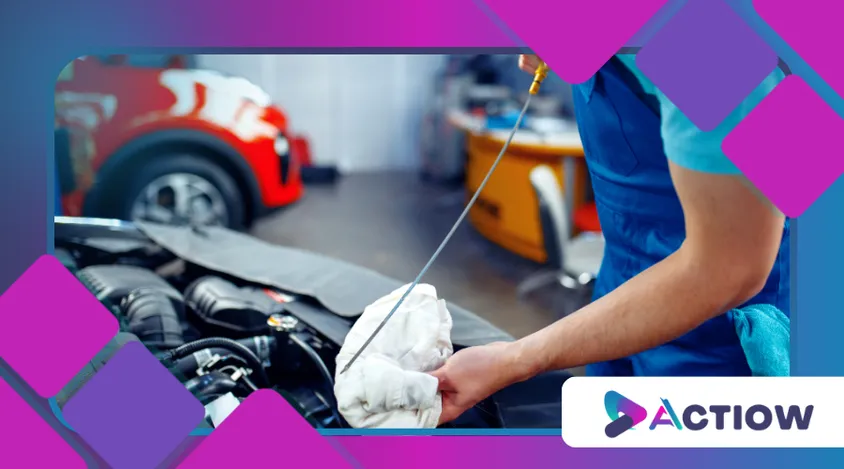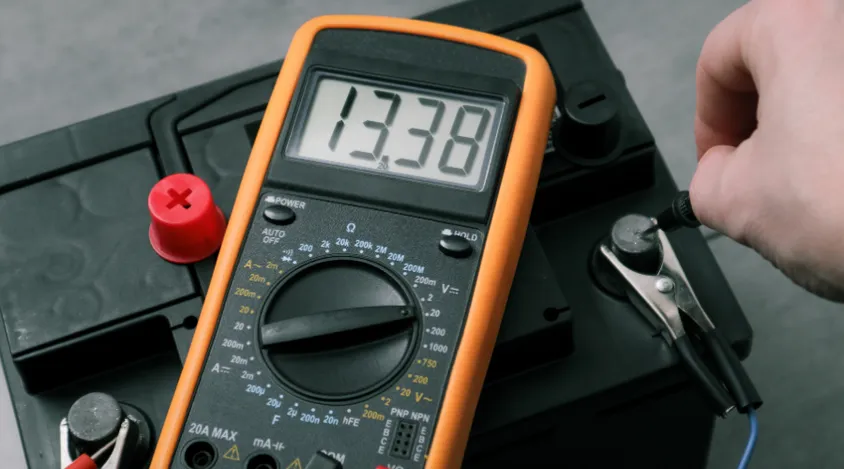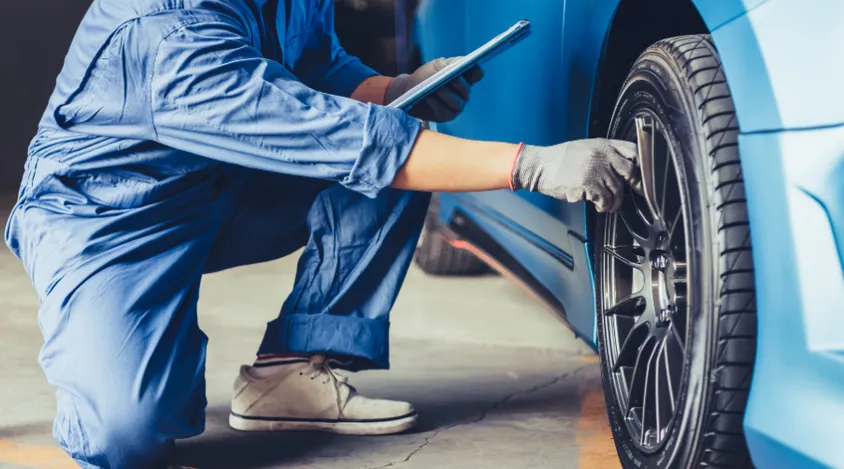Signs Your Car Needs an Urgent Check-Up

Anúncios
Your car is more than just a mode of transportation—it’s a complex machine that requires regular care to stay in top shape.
Ignoring warning signs can lead to costly repairs or even dangerous breakdowns.
Recognizing when your vehicle needs an urgent check-up is crucial for maintaining its performance and your safety.
Anúncios
From strange noises to dashboard warnings, here’s how to spot the signs that demand immediate attention.
Being attentive to your vehicle’s condition can help you catch problems early, saving you time and money.
Additionally, a proactive approach to car maintenance can enhance your overall driving experience, ensuring peace of mind on the road.
1. Unusual Noises: Listen to What Your Car Is Telling You
Cars don’t talk, but they communicate through sounds.
If you hear grinding, squealing, or knocking noises, it’s time for an urgent check-up.
For instance, a grinding sound when braking often indicates worn brake pads, while a knocking noise from the engine could signal serious internal damage.
According to a 2022 study by AAA, 35% of drivers delay repairs even after noticing unusual sounds, leading to more expensive fixes down the line.
Paying attention to these noises can prevent small issues from escalating into major repairs.
Regularly inspecting your vehicle can help you identify the source of these sounds and address them promptly.
2. Warning Lights: Your Dashboard’s Cry for Help
Modern vehicles are equipped with advanced sensors that monitor everything from engine health to tire pressure.
When a warning light illuminates—whether it’s the check engine light, oil pressure warning, or battery alert—it’s a clear signal that something’s wrong.
Ignoring these warnings can result in catastrophic failures.
For example, driving with a flashing check engine light could lead to engine damage costing thousands to repair.
Understanding what each warning light means can empower you to take appropriate action.
Consult your owner’s manual or online resources for guidance on how to respond to specific alerts.
3. Poor Performance: When Your Car Loses Its Edge
Has your car lost its pep?
Sluggish acceleration, difficulty starting, or frequent stalling are all signs that your vehicle needs an urgent check-up.
These issues could stem from a failing fuel system, clogged air filters, or even a malfunctioning transmission.
Addressing these problems early can prevent more severe damage and keep your car running smoothly.
Regular performance checks can help you identify underlying issues before they become critical.
Additionally, maintaining your vehicle’s performance can enhance fuel efficiency, saving you money at the pump.
4. Leaks and Puddles: Don’t Let Fluids Go to Waste
Spots of fluid under your car are never a good sign.
Whether it’s oil, coolant, or brake fluid, leaks can indicate serious issues.
For example, a coolant leak might point to a failing radiator, while an oil leak could lead to engine damage if not addressed promptly.
Regularly inspecting your parking spot for puddles can save you from costly repairs.
Identifying the source of the leak can help you determine the urgency of the situation.
If you’re unsure, consider consulting a mechanic to assess the problem and recommend the best course of action.
+ How to Wash Your Car Properly Without Scratching the Paint
5. Vibrations and Shaking: A Sign of Imbalance
If your car vibrates excessively while driving, it’s time to schedule an urgent check-up.
Vibrations can be caused by unbalanced tires, worn-out suspension components, or even issues with the drivetrain.
Not only do these problems affect your comfort, but they can also compromise your safety on the road.
Ignoring vibrations can lead to further damage and more expensive repairs down the line.
Ensuring that your tires are balanced and properly inflated is essential for a smooth ride.
Regular alignment checks can also help maintain your vehicle’s stability and handling.

6. Strange Smells: When Your Nose Knows Best
Unusual odors inside or outside your car are often a red flag.
A burning smell could indicate overheating or an electrical issue, while a sweet, syrupy scent might suggest a coolant leak.
If you notice a persistent strange smell, don’t wait—get your car inspected immediately.
Different smells can point to specific problems, so being aware of them can help you respond appropriately.
For example, a rotten egg smell may indicate a problem with the catalytic converter, requiring urgent attention.
Taking action quickly can prevent further damage and keep your vehicle safe to drive.
7. Decreased Fuel Efficiency: Pay Attention at the Pump
If you’re visiting the gas station more often than usual, your car might be trying to tell you something.
Poor fuel efficiency can result from a variety of issues, including dirty fuel injectors, underinflated tires, or a malfunctioning oxygen sensor.
Addressing these problems can save you money and reduce your environmental impact.
Monitoring your fuel consumption can help you identify changes that may indicate underlying issues.
For instance, a sudden drop in fuel efficiency could signal a need for maintenance or repairs.
Staying proactive about your vehicle’s performance can lead to significant savings over time.
8. Steering Problems: Don’t Lose Control
Difficulty steering, a stiff steering wheel, or unusual noises when turning are all signs that your car needs an urgent check-up.
These issues could be caused by low power steering fluid, a failing pump, or problems with the suspension system.
Ignoring them can make your car unsafe to drive.
Regularly checking your power steering fluid levels can help prevent steering issues before they escalate.
If you experience any steering difficulties, it’s essential to seek professional help promptly.
Ensuring your steering system is in good condition is crucial for maintaining control and safety on the road.
9. Exhaust Smoke: More Than Just Hot Air
The color of your car’s exhaust smoke can reveal a lot about its health.
Blue smoke indicates burning oil, white smoke suggests coolant leakage, and black smoke points to a rich fuel mixture.
Each of these scenarios requires immediate attention to prevent further damage.
Understanding the implications of different exhaust colors can help you diagnose issues more effectively.
For example, black smoke may indicate a fuel injection problem, which could lead to engine damage if left unaddressed.
Regular checks of your exhaust system can help maintain your vehicle’s performance and efficiency.

10. Brake Issues: Your Safety Depends on It
Brakes are one of the most critical safety components of your car.
If you notice squeaking, grinding, or a spongy brake pedal, it’s time for an urgent check-up.
Delaying brake repairs can lead to complete brake failure, putting you and others at risk.
Regularly inspecting your brake system can help you identify wear and tear before it becomes a serious issue.
For instance, replacing brake pads before they wear down completely can save you from more costly rotor replacements.
Prioritizing brake maintenance is essential for ensuring your safety on the road.
Tables: Common Problems and Their Implications
| Symptom | Possible Cause | Action Required |
|---|---|---|
| Grinding noise | Worn brake pads | Replace brake pads immediately |
| Check engine light | Engine or emissions issue | Diagnose with a professional scan |
| Coolant leak | Failing radiator or hose | Inspect and repair cooling system |
| Vibrations | Unbalanced tires or suspension | Balance tires or replace parts |
| Burning smell | Overheating or electrical issue | Investigate and fix the source |
| Fluid Type | Color | Indication |
|---|---|---|
| Engine oil | Amber to brown | Normal |
| Coolant | Green, pink, or orange | Normal |
| Transmission fluid | Red or brown | Normal |
| Brake fluid | Clear or light yellow | Normal |
The Cost of Ignoring Warning Signs
Delaying an urgent check-up can have serious consequences.
According to CarMD, the average cost of repairing a check engine light-related issue in 2023 was $398, but ignoring it can lead to repairs costing thousands.
Regular maintenance and timely inspections can save you money and extend your car’s lifespan.
Additionally, addressing issues early on can prevent you from being stranded or facing more severe problems while driving.
Investing in preventive care for your vehicle is a smart financial decision that pays off in the long run.
++ Preventive Maintenance: What to Do Every 10,000 km?
How Often Should You Schedule a Check-Up?
While the signs mentioned above indicate the need for an urgent check-up, regular maintenance is equally important.
Most experts recommend a comprehensive inspection every 6 months or 5,000 to 7,500 miles, depending on your driving habits and vehicle age.
Staying on top of your car’s maintenance schedule can help you catch potential issues before they escalate.
Using a maintenance log or app can help you track service dates and remind you when it’s time for your next check-up.
By being proactive, you can ensure your vehicle remains reliable and safe on the road.
DIY vs. Professional Inspection: What’s Best?
While some car owners prefer DIY inspections, a professional mechanic has the tools and expertise to identify issues that might go unnoticed.
For example, a mechanic can perform a diagnostic scan to pinpoint engine problems or inspect hard-to-reach components like the transmission.
Knowing when to seek professional help is crucial for maintaining your vehicle’s health.
While DIY maintenance can save you money, some tasks require specialized knowledge and equipment to ensure proper handling.
Balancing DIY efforts with professional services can lead to the best outcomes for your car’s performance and longevity.
Conclusion: Don’t Wait Until It’s Too Late
Your car is a reliable companion, but it needs your attention to stay in peak condition.
Recognizing the signs that demand an urgent check-up can prevent minor issues from escalating into major problems.
From strange noises to warning lights, every symptom is a call to action.
Regular maintenance and timely inspections not only save you money but also ensure your safety on the road.
So, the next time your car sends you a signal, don’t ignore it.
Schedule that urgent check-up and keep your vehicle running smoothly for years to come.
After all, a well-maintained car is a happy car—and a happy car means a stress-free driver.
By staying vigilant and proactive, you can avoid the pitfalls of neglect and enjoy a safer, more reliable driving experience.
Remember, your car’s health is in your hands.
Are you ready to take charge?
